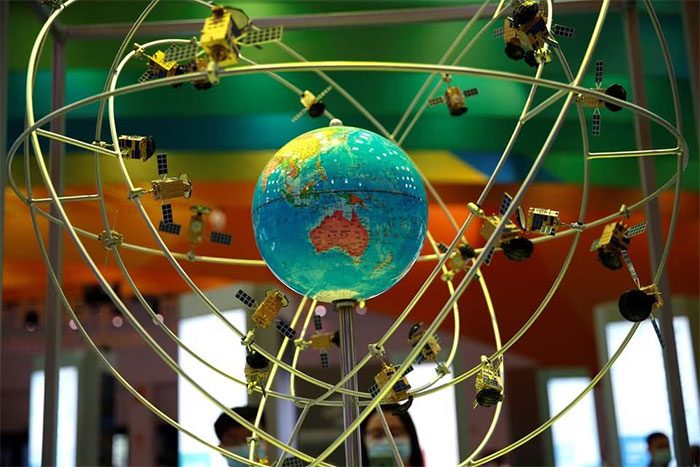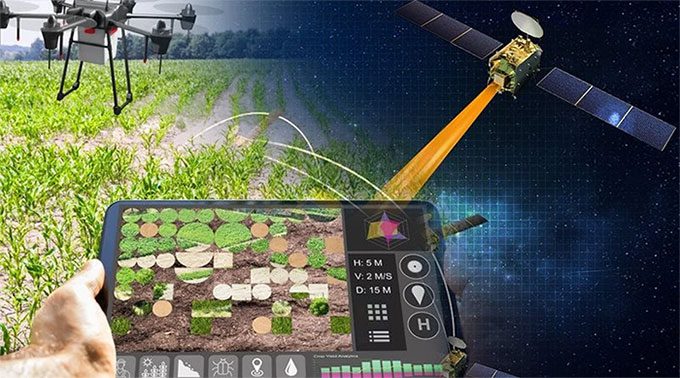As of January this year, China has exported products related to this system to approximately 200 countries and regions around the world.
Currently, GPS is the oldest and most widely used satellite positioning system globally, with 6 billion users. GPS (owned by the U.S. government) was initially designed as a military tool, used for purposes such as missile guidance and operating drones. Over time, this technology has become indispensable to everyday life.

Currently, GPS is the oldest and most widely used satellite positioning system.
However, the United States is not the only country with its own global positioning system. While Russia has the GLONASS system and the European Union has Galileo, China possesses Beidou – a system that is considered capable of threatening GPS’s dominance for decades.
According to CNBC, Beidou satellites are driving economic development in China. By the end of 2019, the Beidou positioning system had been applied in nearly 6.6 million taxis, buses, and trucks across China. More than 2,900 marine navigation devices in the country also utilize Beidou services.
By the end of 2021, the system was installed in over 7.8 million road transport vehicles in China. Meanwhile, about 8,000 Beidou terminals were used on the railway network, and more than 100,000 agricultural machines were equipped with this autonomous driving system.
Moreover, Beidou is helping the populous nation enhance its influence globally. As of January this year, China has exported products related to this system to approximately 200 countries and regions around the world.
The Chinese government began developing the Beidou system in the late 1990s to reduce military dependence on the U.S. GPS. Beidou achieved its first major milestone in 2000 when satellites were launched into space, covering all of China.

The Beidou system is applied in various fields, including agriculture. (Photo: TechTimes).
Subsequently, Beidou began offering services for military operations, traffic management, and police activities in the Asia-Pacific region in 2012, as the demand for connected devices surged.
The Beidou system achieved global coverage in 2020. Since then, China has accelerated the expansion of applications for civil purposes. They are also preparing to build the next-generation BDS-4 system by 2035, which promises higher accuracy and global reach.
As of January 2023, 1.5 billion smart devices worldwide were linked to Beidou, and approximately 98% of smartphones sold in China in the first half of 2022 were equipped with Beidou navigation features.
With the integration of advanced technologies such as 5G and the Internet of Things (IoT), Beidou is expected to create even more applications in transportation, energy, fisheries, agriculture, urban management, and other fields.
For instance, the combination of Beidou and 5G in bike-sharing services has brought convenience to users and efficiency to rental companies. A company director stated that Beidou’s network would help users park more orderly while technicians could use the system to manage vehicle information in real-time and efficiently handle incidents.
“Previously, bikes were only equipped with 2G or 3G networks, causing unstable signals and difficulties for users in locating bikes or making online payments. The integration of Beidou and 5G has resolved this issue,” an industry expert commented.





















































